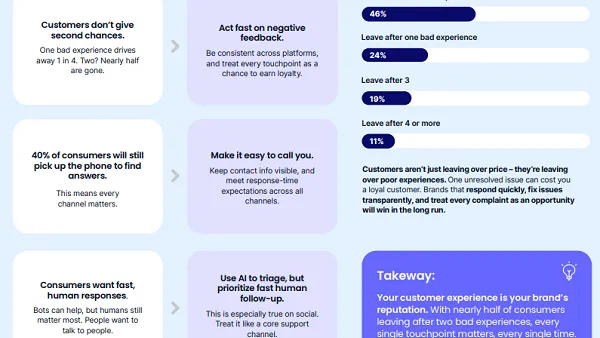Dive Brief:
- Most brand marketers (91%) plan to stay focused on the trust-building strategies they developed last year as the pandemic and wider social unrest reshaped thinking on key aspects of marketing, according to a survey by marketing platform Iterable.
- Eighty-seven percent of respondents reported their brands needed to pivot to build trust more effectively last year. One quarter identified a shift to more crisis-driven communications, while 24% cited a bigger spotlight put on empathetic marketing. Twenty-three percent said their outreach became more sales-driven.
- Almost half (47%) of brands issued statements about racial inequality last year, making the issue more common than public health (40%), gender inequality (34%), LGBT pride (32%) and climate change (29%). Iterable surveyed 500 B2C marketers in the U.S. and U.K. for its research.
Dive Insight:
Brand trustworthiness became a bigger theme last year as the pandemic and widespread social unrest led consumers to grapple more with uncertainty. Iterable's survey reinforces that strategies forged in the fires of 2020 will remain in place for the year ahead as COVID-19 continues to place significant strain on society and the economy.
Even after the health crisis abates, it appears likely that the shift in marketers' thinking toward more empathetic and socially aware outreach will linger. Brand trustworthiness has evolved to include a variety of social issues, especially when targeting younger consumers who show greater awareness toward how their purchase decisions affect causes they support. Last year's protests against racism and police violence led many marketers to expand their messaging around diversity and inclusion, and to back up those efforts with real actions.
The fact that brands issued more statements addressing racism than they did for public health or climate change in 2020 speaks to the growing appetite for brands to take a stand on key social issues. But boldness in such areas only stretches so far for some companies.
Politics tends to be a divisive subject for marketers, with 57% of those surveyed by Iterable saying it is ethical to bring politics into their brands, compared with 41% who said it is unethical. Most marketers (83%) agreed that a company should remain politically neutral, though 51% said their companies didn't do enough in their initiatives on social issues. While statements around racial inequality were common last year, only 23% of marketers made direct comment on the 2020 elections, while 21% expressed some sentiment around defunding the police — a key issue for social justice activists.
The friction between these viewpoints highlights how brands need to be mindful about whether the causes they back drift into political endorsements that may alienate some consumers. In addition to concerns about ethics, marketers who said they want to remain politically neutral also said political positioning turns off some consumer groups and negatively affects their brand (31%) or doesn't resonate with their target audience (27%).
Working with third parties can help refine messaging while giving cause-driven work more credibility. More than half (57%) of marketers said they partnered with an organization or nonprofit on an initiative to help those affected by an issue last year, while an equal percentage created social media content that advocated for the issue, Iterable's survey found.
Other common responses included donating a portion of profits to an organization (46%), sending direct messages about an issue to customers (36%) or giving employees paid time off to volunteer or protest (22%). More than three quarters (79%) of companies plan to continue their messaging about social issues in 2021.














